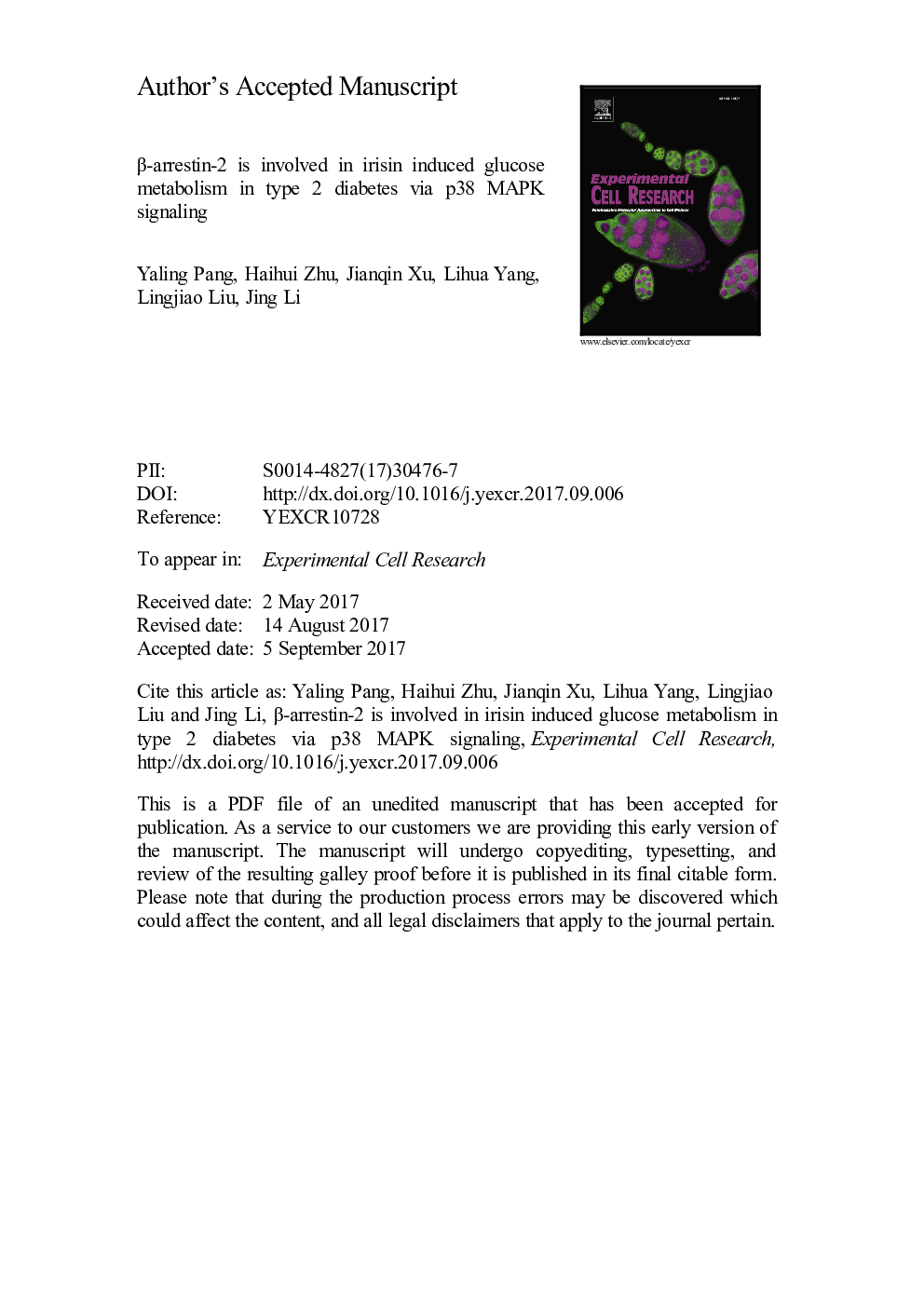| Article ID | Journal | Published Year | Pages | File Type |
|---|---|---|---|---|
| 8452092 | Experimental Cell Research | 2017 | 24 Pages |
Abstract
Type 2 diabetes mellitus (T2DM) is a common metabolic disease worldwide. It has been reported that irisin play regulatory role in glucose metabolism in T2DM. However, the underlying mechanism involved in that is not completely known. Herein, we determined the novel role of β-arrestin-2 in irisin-induced glucose utilization in diabetes. Effects of irisin and β-arrestin-2 on glucose utilization were investigated in a rat model of diabetes and in diabetic C2C12 cells in vitro. Results showed that irisin had positive role in glucose metabolism via regulating glucose tolerance as well as uptake in cardiac and skeletal muscle tissues, as evidenced by IPGTT, 2-deoxyglucose uptake and plasma membrane GLUT-4 assay. β-arrestin-2 also improved glucose utilization in diabetes by increasing the glucose uptake and insulin sensitivity, as shown in mice overexpressing β-arrestin-2. In diabetic C2C12 myocytes, irisin-induced GLUT4 and glucose uptake were restrained by β-arrestin-2 inhibition, but was enhanced by β-arrestin-2 overexpression. Additionally, irisin and β-arrestin-2 increased the activation of p38 MAPK in diabetic C2C12 cells, and the repression of p38 MAPK activation decreased the glucose uptake and plasma membrane GLUT-4 was enhanced by irisin and β-arrestin-2 overexpression in diabetic C2C12 cells. In conclusion, we demonstrated that β-arrestin-2 has a crucial role in irisin induced glucose metabolism in T2DM by regulating the p38 MAPK signaling. This might present a novel therapeutic target of treatment for human diabetes.
Related Topics
Life Sciences
Biochemistry, Genetics and Molecular Biology
Cancer Research
Authors
Yaling Pang, Haihui Zhu, Jianqin Xu, Lihua Yang, Lingjiao Liu, Jing Li,
